The National Research Professorship is an Indian award given to scholars who have made exceptional contribution in their fields. [1]

The German Research Foundation is a German research funding organization, which functions as a self-governing institution for the promotion of science and research in the Federal Republic of Germany. In 2019, the DFG had a funding budget of €3.3 billion.
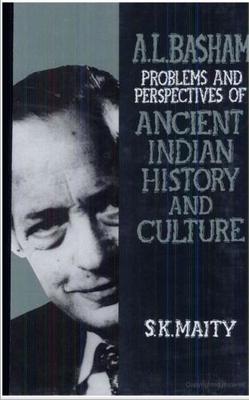
Arthur Llewellyn Basham was a noted historian, Indologist and author of a number of books. As a Professor at the School of Oriental and African Studies, London in the 1950s and the 1960s, he taught a number of famous historians of India, including professors Ram Sharan Sharma, Romila Thapar, and V. S. Pathak and Thomas R. Trautmann.
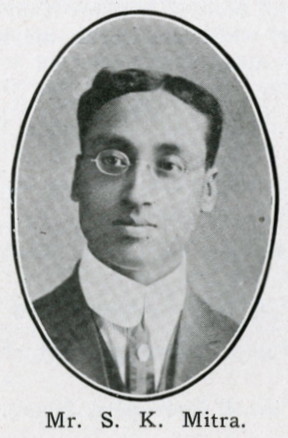
Sisir Kumar Mitra MBE, FNI, FASB, FIAS, FRS was an Indian physicist.

Sushanta Kumar Bhattacharyya, Baron Bhattacharyya, was a British-Indian engineer, educator and government advisor. In 1980, he became Professor of Manufacturing Systems at the University of Warwick and founded the Warwick Manufacturing Group. In 2004, he was made a Life Peer and became a member of the House of Lords.

Tapan Raychaudhuri was a British-Indian historian specialising in British Indian history, Indian economic history and the History of Bengal.
A research fellow is an academic research position at a university or a similar research institution, usually for academic staff or faculty members. A research fellow may act either as an independent investigator or under the supervision of a principal investigator.

Vinay Kumar is the Lowell T. Coggeshall Distinguished Service Professor of Pathology at the University of Chicago, where he was also the Chairman (2000-2016) of the Department of Pathology. He is a recipient of Life Time Achievement Award by National Board of Examinations.
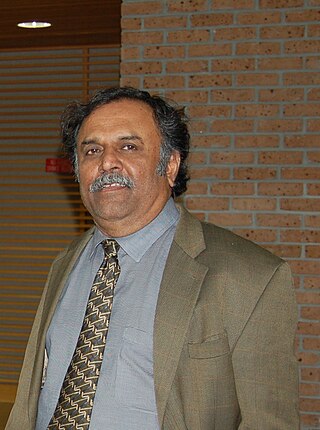
Sundaraja Sitharama Iyengar is an Indian-born American computer scientist and the Distinguished University Professor, Ryder Professor and Director of Computer Science at Florida International University, Miami, Florida, USA. He also founded and directs the Robotics Research Laboratory at Louisiana State University (LSU). He has been a Visiting Professor or Scientist at Oak Ridge National Laboratory, Jet Propulsion Laboratory, Naval Research Laboratory, and has been awarded the Satish Dhawan Visiting Chaired Professorship at the Indian Institute of Science, the Homi Bhaba Visiting Chaired Professor (IGCAR), and a professorship at the University of Paris (Sorbonne).
Krishan Kumar is a British sociologist who is currently William R. Kenan, Jr., Professor of Sociology at the University of Virginia.
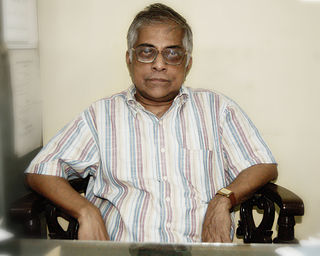
Amitava Raychaudhuri is an Indian theoretical particle physicist. He is Professor Emeritus at the Physics Department of the Science College, University of Calcutta where he earlier held the Sir Tarak Nath Palit Chair Professorship. He is the nephew of another renowned Indian physicist, Amal Kumar Raychaudhuri.

Philip Kumar Maini is a Northern Irish mathematician. Since 1998, he has been the Professor of Mathematical Biology at the University of Oxford and is the director of the Wolfson Centre for Mathematical Biology in the Mathematical Institute.
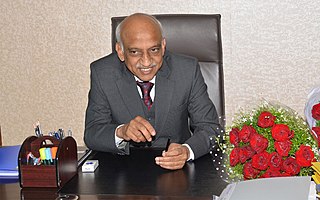
Aluru Seelin Kiran Kumar is an Indian space scientist and former chairman of the Indian Space Research Organisation, having assumed office on 14 January 2015. He is credited with the development of key scientific instruments aboard the Chandrayaan-1 and Mangalyaan space crafts. In 2014, he was awarded the Padma Shri, India's fourth highest civilian award, for his contributions to the fields of science and technology. Kiran Kumar previously served as Director of Ahmedabad Space Applications Centre.
Vijender Kumar is a professor of Law and currently serving as the Vice-Chancellor of Maharashtra National Law University, Nagpur, a National Law University in Nagpur, Maharashtra, India. With his experience as a legal professional at Bar Council of India, and also as an Academic administrator in Indian legal realm, Kumar is regarded as one of the authorities on the subject of Family law in India.

Arun Kumar Sharma, popularly known as AKS, was an Indian cytogeneticist, cell biologist, cytochemist and a former Sir Rashbehary Ghose Professor and Head of the Department of Botany at the University of Kolkata, College of Science and Technology. Considered by many as the father of Indian cytology, he headed the Centre for Advanced Study on Cell and Chromosome at the university and is known for his contributions to the studies on the physical and chemical nature of chromosomes. A Jawaharlal Nehru fellow, he is a recipient of several honors including the Om Prakash Bhasin Award and the VASVIK Industrial Research Award. The Council of Scientific and Industrial Research, the apex agency of the Government of India for scientific research, awarded him the Shanti Swarup Bhatnagar Prize for Science and Technology, one of the highest Indian science awards, in 1967, for his contributions to biological sciences. The Government of India awarded him the third highest civilian honor of the Padma Bhushan in 1983.
Debi Prasad Sarkar is an Indian biochemist, immunologist and virologist. He was the head of biochemistry department and dean FIAS, at the University of Delhi South Campus and served as the director of IISER Mohali from 2017 to 2019. He then resumed his professorship and subsequently promoted to the post of senior professor of biochemistry, with effect from 18 July 2018 at the parent institute, University of Delhi. Serving as joint director, DSSEED, IoE, University of Delhi. On the scientific front, he is renowned for his researches on Sendai virus and developing reconstituted viral envelopes. He is an elected fellow of Indian Academy of Sciences, National Academy of Sciences, India and Indian National Science Academy. The Council of Scientific and Industrial Research, the apex agency of the Government of India for scientific research, awarded him the Shanti Swarup Bhatnagar Prize for Science and Technology, one of the highest Indian Science Awards, in 1998, for his contributions to Biological Sciences. Received Excellence Teacher Award on service by the University of Delhi.
Amalendu Chandra is an Indian theoretical physical chemist, a professor and the head of the Department of Chemistry at the Indian Institute of Technology, Kanpur. He is known for his microscopic theories and simulations on liquids, interface and clusters. He is an elected fellow of the Indian Academy of Sciences and the Indian National Science Academy. The Council of Scientific and Industrial Research, the apex agency of the Government of India for scientific research, awarded him the Shanti Swarup Bhatnagar Prize for Science and Technology, one of the highest Indian science awards, in 2007, for his contributions to chemical sciences.
Narendra Kumar was an Indian theoretical physicist and a Homi Bhaba Distinguished Professor of the Department of Atomic Energy at Raman Research Institute. He was also an honorary professor at Jawaharlal Nehru Centre for Advanced Scientific Research.
Arup Kumar Raychaudhuri is an Indian condensed matter physicist, materials scientist and a Distinguished Emeritus Professor at the S. N. Bose National Centre for Basic Sciences. Known for his pioneering work on the interplay of disorder and interaction, Raychaudhuri is an elected fellow of all the three major Indian science academies viz. Indian Academy of Sciences, National Academy of Sciences, India and Indian National Science Academy as well as the Asia-Pacific Academy of Materials. He is a recipient of a number of awards such as Millennium Medal of the Indian Science Congress, ICS Gold Medal of the Materials Research Society of India and FICCI Award. The Council of Scientific and Industrial Research, the apex agency of the Government of India for scientific research, awarded him the Shanti Swarup Bhatnagar Prize for Science and Technology, one of the highest Indian science awards, for his contributions to physical sciences in 1994.
Ambarish Ghosh is an Indian scientist, a faculty member at the Centre for Nano Science and Engineering (CeNSE), Indian Institute of Science, Bangalore. He is also an associate faculty at the Department of Physics. He is known for his work on nanorobots, active matter physics, plasmonics, metamaterials and electron bubbles in liquid helium.

Adrian Robert Krainer is a Uruguayan-American biochemist and molecular geneticist known for his research into RNA gene-splicing. Krainer holds the St. Giles Foundation Professorship at Cold Spring Harbor Laboratory in Laurel Hollow, New York.